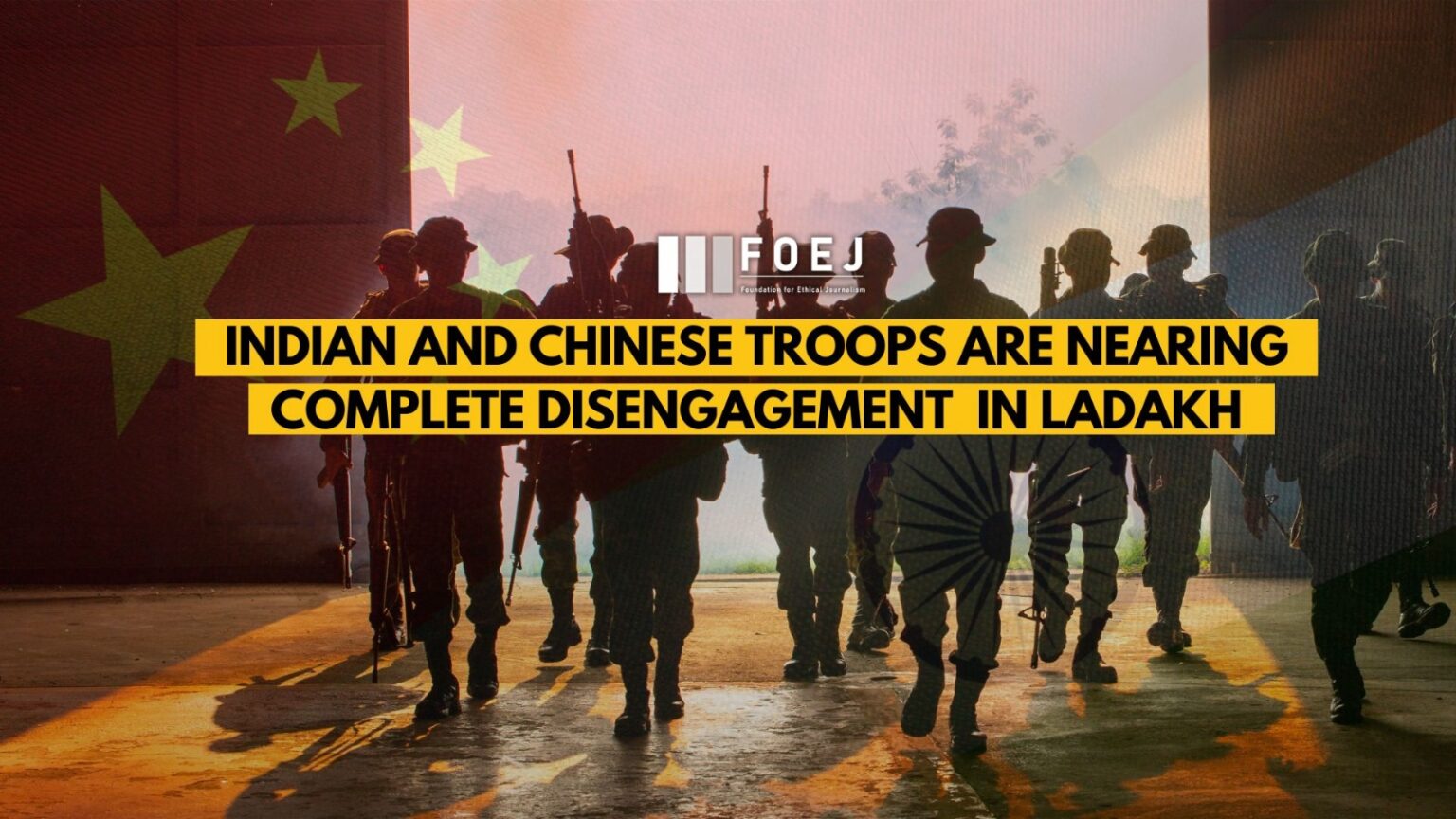The disengagement of Indian and Chinese armies from Depsang and Demchok in eastern Ladakh nearly comes to an end. The end comes with both sides simultaneously carrying out joint verification of the troop and equipment pullback to a specified and mutually agreed distance on Tuesday.
As per the process of the disengagement, the Indian Army and the Chinese People’s Liberation Army (PLA) have pulled back their forward deployed troops.
The disengagement is mostly over, and its final verification is being done in line with the agreement reached by India and China on October 21 to reduce border tensions,” said one of the people.
This will reportedly allow the Indian Army and PLA to get a two year halt in negotiations to reduce the possibilities of difference. This will also assist in finding a resolution of outstanding issues along LAC.
The Lieutenant General Vinod Bhatia (retd), a former director general of military operations said , patrolling will be facilitated in Depsang and Demchok in a coordinated manner and in the agreed upon frequency and strength of the patrolling parties.
“This will ensure there are no face-offs and mitigate any chances of a spiral. Since the impasse in the talks has been broken, we can now expect the two sides to chart a path to restore peace and tranquillity along LCA,” Bhatia added.
How did the Disengagement Begin?
The disengagement started after both India and China announced a breakthrough in negotiations on October 21. This was reportedly done to resolve the standoff in Depsang and Demchok. These two are the last flashpoints in Ladakh where rival soldiers have been there for years.
As per updated by the Hindustan Times, the disengagement agreement applies solely to Depsang and Demchok, with both nations set to continue discussions at various levels regarding other regions where buffer zones were established following troop withdrawals.
The disengagement of rival troops from Depsang and Demchok will proceed without the establishment of buffer zones, unlike previous rounds of troop withdrawal.









